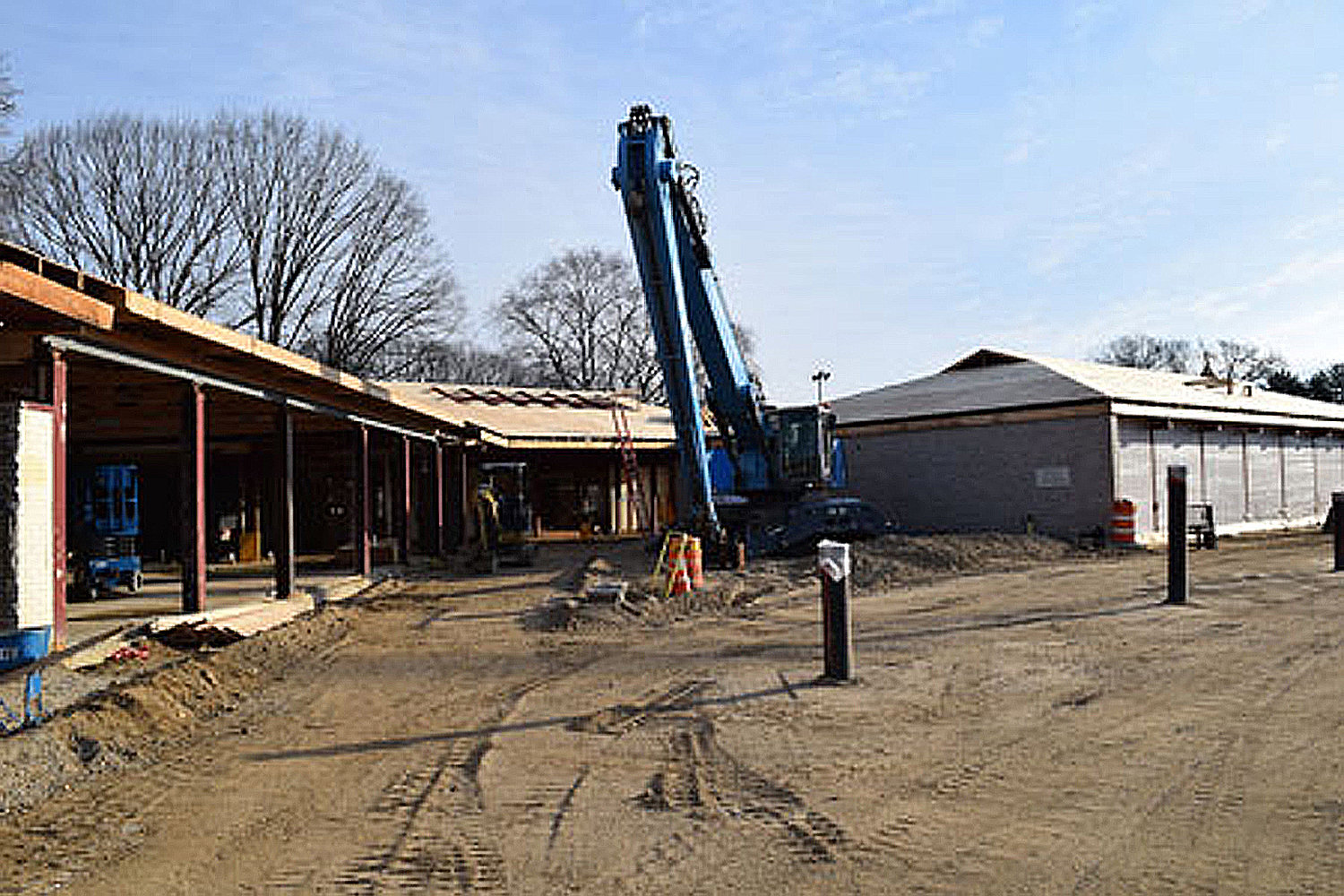Wantagh firm files for bankruptcy
The Wantagh-based Gramercy Group Inc, which has been involved since February in a dispute with the Town of North Hempstead about work done on the swimming pool at Clinton G. Martin Park in New Hyde Park, filed for bankruptcy protection on May 22.
Gramercy’s Chapter 11 filing has the effect of immediately staying for 60 days any action by North Hempstead in its default proceedings against Gramercy. The town had been withholding between $2.5 million and $2.7 million in payments for work done on the pool, claiming that Gramercy failed to complete the work detailed in the original contract, according to Gramercy attorney Michael McKenna, a partner in the Newark, N.J.-based firm Cohen Siglias.
At the same time, Gramercy, which specializes in wrecking and demolition, was involved in a lawsuit against D.A. Builders, a drywall contractor in Ewa Beach, Hawaii. In that case, decided in federal court in Hawaii on May 17, Gramercy was held liable for $6.7 million to D.A. Builders for work it did as a subcontractor on Gramercy’s portion of the Hawaii International Marketplace project in Honolulu.
The Hawaii verdict against Gram-ercy was surprising, McKenna said. “That judgment, combined with [North Hempstead’s] nonpayment, pushed Gramercy over the edge.”
Under Chapter 11, the firm is allowed to continue work on projects such as renovations at LaGuardia Airport, while a bankruptcy trustee adjudicates any outstanding claims against the firm.
In the dispute with North Hempstead, the town declared Gramercy in default for nonperformance of contracted work, which the town alleged resulted in a delay of the pool’s opening. The facility, originally scheduled to open in April 2018, opened two months later.
In a letter to North Hempstead Commissioner of Public Works Paul DiMaria two weeks ago, McKenna wrote that the contract provided for the opportunity to address any outstanding issues in a public meeting between the two parties before the town could declare the contractor in default.
In any case, McKenna wrote, the town was responsible for the delays, because of conditions at the construction site that had not been detailed in the original request for proposals. For example, Gramercy found an additional 5,500 square feet of asbestos requiring removal. “While this work was performed, Gramercy could not work on that area of the project,” McKenna wrote. “It not only impacted the cost, but it took an additional three weeks to perform, thereby delaying Gramercy’s progress.”
McKenna alleged in the same letter that Gramercy could not complete contractually stipulated electrical work because it found a “conflict between the work shown on the contract documents and the requirements of the electrical code.”
Contract documents also failed to provide for structural steel necessary to complete the pool’s bathhouses, McKenna wrote. Gramercy furnished the town with revised plans, and meanwhile ordered and paid for the material required.
In one bizarre twist of the dispute, the town allegedly demanded the removal of a planter from the entrance to the pool “on aesthetic grounds” after it was completed, McKenna said. The planter was part of the original design, and its removal added roughly $60,000 to the cost of the project, he said.
Calls to DiMaria and the town requesting comment were not returned by press time.
McKenna emphasized that the town’s on-site engineering firm, LiRo Group, brought on to ensure Gramercy’s completion of the project according to the terms of the contract, was aware of these and at least a dozen other issues that made it necessary for Gramercy to revise the town’s plans or carry out additional work not provided for in the original agreement. “LiRo never raised any issues with Gramercy, either at the time or later,” McKenna said.
Disputes about Gramercy’s work arose only late last year, McKenna said — five months after the pool opened to the public. “LiRo could’ve challenged any of Gramercy’s work, any of the change orders . . .,” he said. “They were at the site constantly throughout the project.”
McKenna suggested that the changes to the project outlined in his letter to DiMaria pushed the cost of the project past the amount for which the town had originally bonded. “They don’t have the money,” he said. By alleging that Gramercy failed to fulfill its contact, “they hope to gain enough credits to offset what they owe.”

 45.0°,
Partly Cloudy
45.0°,
Partly Cloudy 




